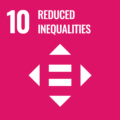Imperial College London designs an invention space for disadvantaged teens

Studyshots Education Photography, Photography for University Brochures / Prospectuses, Summer Schools, Lifestyle Photography, Academy Photography, Thomas Angus
For many teens, seeing a 3D printer build, layer by layer, the design they just completed on a nearby laptop is an awe-inspiring experience. These days, members of Imperial College London’s outreach team, armed with 3D printers and robots, are frequent visitors at neighborhood festivals in London’s White City neighborhood, where the college is building a new 23-acre campus.
Within The Invention Rooms, a new Reach Out Makerspace will enable local young people ages 14 to 18 to create new prototypes based on their own ideas through a series of “maker challenge” programs.White City is characterized as among the 10 percent most disadvantaged areas in the UK, with an unemployment rate twice the London average. As part of its commitment to the regeneration of the local area, Imperial’s community engagement team, led by Dr. Maggie Dallman, Associate Provost of Academic Partnerships and Professor of Immunology, is looking to excite the creativity and wonder of local young people by creating a unique space called “The Invention Rooms” for community-driven innovation. Located on a busy thoroughfare in west London, this space will comprise a series of workshops and public interaction spaces.

A young student receives guidance at a maker event at Imperial College London.
In 2016, the Elsevier Foundation partnered with Imperial to provide $300,000 over three years to support the Reach Out Makerspace. This space will be co-located with an Advanced Hackspace for Imperial’s creative technologists, encouraging interaction and mentoring with the teenagers participating in outreach programs. It will be equipped with 3D printers, scanners, computer-aided design, development boards and laser cutters for making, coding and digital fabrication. Ultimately, the goal is to help local young people feel more connected to their peers, engage in creative and constructive after-school activities and realize their potential in a dynamic and nurturing environment.
- Read the full article on Elsevier Connect: “Imperial College London designs an invention space for disadvantaged teens”, Ylann Schemm, 8 February 2017


















